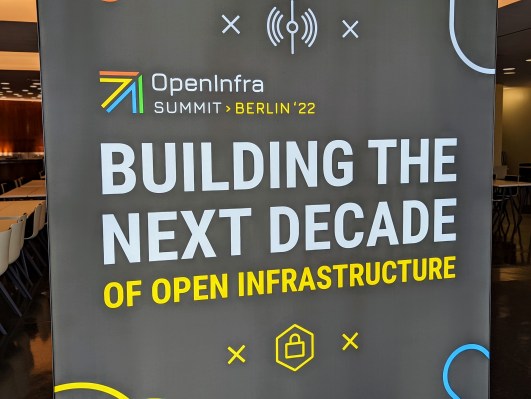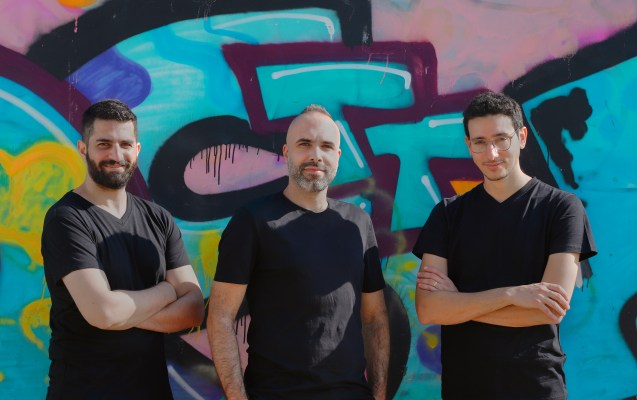The OpenInfra Foundation launches ‘directed funding’ as a new way to support open-source projects – TechCrunch
The OpenInfra Foundation, the open-source foundation that used to be the OpenStack Foundation until it expanded its scope beyond its flagship project a few years ago, today announced an interesting new way for companies to fund open-source projects inside the foundation. Traditionally, corporate members of open-source foundations support the organization by paying a membership fee, which, for the most part, the foundations then distribute as they see fit. Now, with its new ‘Directed Funding’ model, the OpenInfra foundation is launching a new model that allows members to direct their funds directly to a project.
“I think, in general, our communities are well recognized for having very strong technical governance and very clear rules around how technical decisions are made — and people appreciate that and the firewall between sponsorship and those technical decisions,” Jonathan Bryce, the OpenInfra Foundation’s CEO and executive director, told me ahead of today’s announcement. “I think what we were kind of missing in some cases in that model was the ability to — and you’ll maybe you’ll see where the term came from — direct funding to a specific project.”
The reason the foundation didn’t previously allow this is because, as Bryce noted, it can create mixed incentives and a pay-for-play dynamic that the organization has always tried to avoid. But at the same time, there was a lot of interest in the community to support specific projects, which makes sense, given that the foundation is now home to a wider variety of projects but where not every member is heavily invested in every project.
Bryce noted that the foundation leadership and board spent a lot of time thinking about how to marry the core principles of the foundation with this new model. The result is a model that tries to combine the best of the OpenStack/OpenInfra technical governance model that has worked quite well over the last 10 years with these new financial considerations.
Every new project under this ‘directed funding’ model will get its own legal entity that will hold the project funding. To ensure that the new projects are legit, an OpenInfra Platinum member (there are 9 right now, including Ant Group, Huawei, Meta, Microsoft and Red Hat) has to serve as the sponsor for the projects and other organizations can then join the project fund. If a sponsor company isn’t an OpenInfra member, it has to become one. All of these funding members then form a project fund governing board and that board decides an the fees to create a budget. Meanwhile, the OpenInfra Foundation will deliver community-building services to these projects.
“It’s not a new approach to how these projects get governed technically. That is actually what has worked super well for a really long time. It’s why new projects have wanted to come and work with our community and our foundation — because of all the trailblazing stuff that happened with OpenStack around technical governance,” OpenInfra COO Mark Collier noted. He added that there are a lot of companies that are looking to build bigger ecosystems around their open-source projects and accelerate adoption — and they are willing to put money behind that. But at the same time, both Collier and Bryce noted that the foundation has put a system in place that they believe will prevent the organization from accepting bad projects for the sake of revenue.
At least for the time being, this new model will only apply to new projects that join the foundation. Bryce and Collier noted that there may be some existing projects where the organization could apply this new model retroactively, but for now, that’s not on the roadmap.
Since it expanded beyond OpenStack, the OpenInfra foundation has added projects like Kata Containers for increased container security, Airship for infrastructure lifecycle management, the Startling X edge compute stack and the Zuul CI/CD platform.
“The most important thing we’ve learned from each of these successful projects is that collaboration is key and the more breadth in the ecosystem of support the better,” said Thierry Carrez, general manager of the OpenInfra Foundation. “In fact, we’ve found that the most successful open source projects are funded by multiple companies, because they are able to combine their resources to achieve a much stronger rate of return.”
For the OpenInfra Foundation, this new model is clearly also a way to bring new projects — and new members — into the fold. Its models of managing open source projects — both through the new directed funds and its more traditional approach — in a multi-party ecosystem may not be for every project, something the leadership team readily acknowledges. Even if the OpenInfra Foundation only gets a smaller portion of projects, though, the number of open-source projects is only going up as the need for these sophisticated cloud infrastructure projects increases, all while they become more complex at that same time.
“When it comes down to it, there’s going to be a lot of projects and that’s why we have multiple foundations,” Bryce noted, though he also acknowledged that the team may not be as aggressive about recruiting as some other foundations may be.
In addition to the new funding model, the Foundation also today announced two new members at its Gold level: Bloomberg Engineering and the Canadian cloud computing service Vexxhost.
As for the Foundation’s various projects, the Foundation also announced a couple of milestone releases, including version 2.0 of Kata Containers, version 5.0 of Zuul and the launch of StarlingX 6.0.
“The Foundation celebrates its 10 anniversary this year, and as we look to our next decade of open infrastructure, we’re building momentum on what makes our model so successful: aligning companies and individuals who wish to work together, providing them with a framework and tools to effectively collaborate, and helping them invest their funds to best help the project they care about,” said Collier.




